Supporting Girls in Crises in Uganda
January 24 is the International Day of Education, an important day set aside by the UN to celebrate the critical role of education for peace and development. As the number of conflicts and wars surge around the world, the theme for this year – “learning for lasting peace” – couldn’t be more urgent or important.
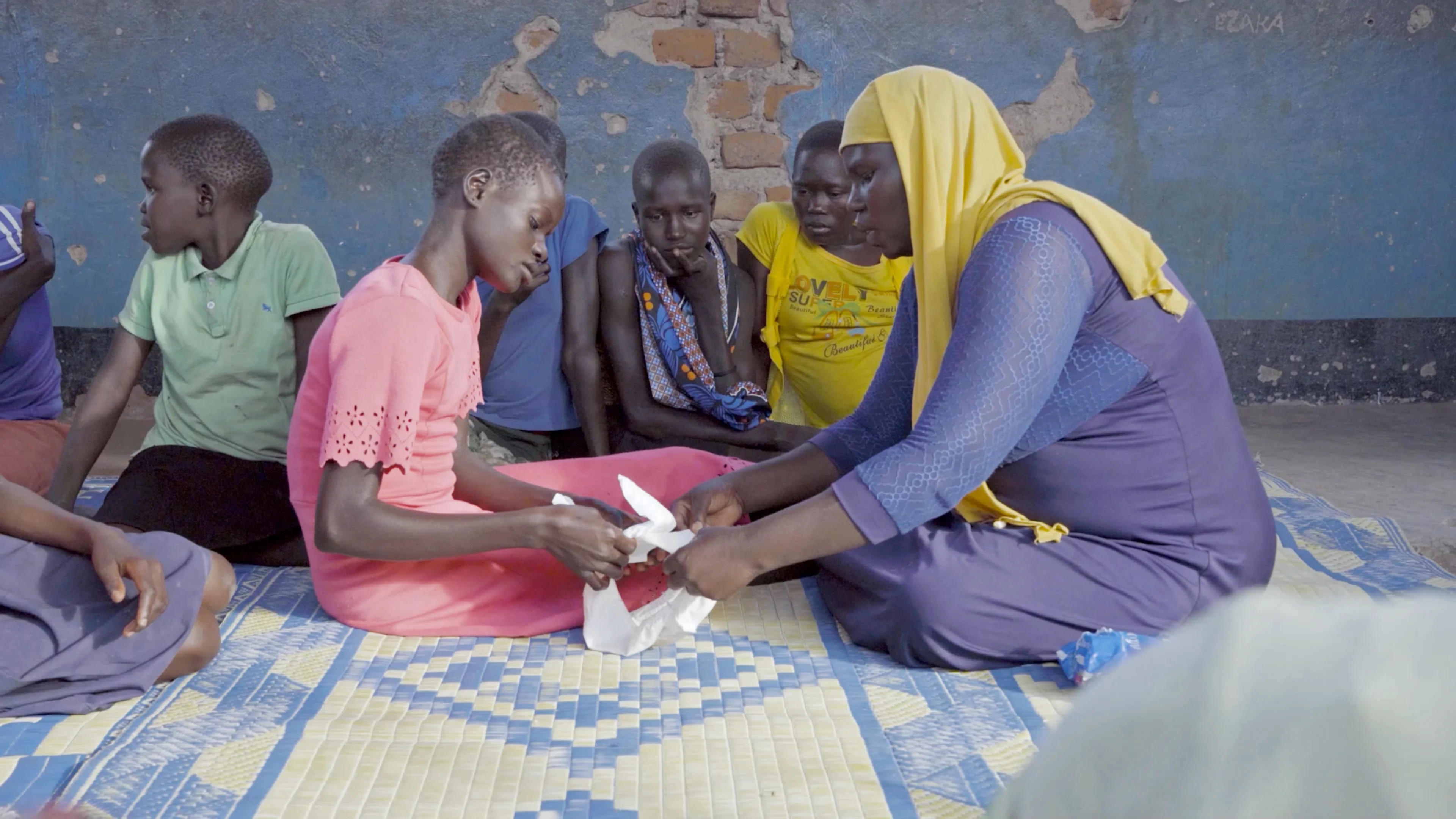

In collaboration with the Judith Neilson Foundation and the Australian Department of Foreign Affairs and Trade (DFAT), our Supporting Girls in Crises initiative in Uganda is committed to providing alternative educational opportunities for girls and young women. This program is designed to develop vocational and life skills that empower them financially, safeguard their rights, enhance their sexual and reproductive health, and support them in nurturing their children, when and if they choose to have them.
With its dramatic mountain ranges, vast grasslands, winding rivers and green forests, Uganda is a country with an abundance of natural beauty, and great agricultural potential, however significant food insecurity, climate change, poverty and displacement makes life difficult for many here.
Almost half of Uganda’s population is under the age of 15, representing one of the youngest populations in the world. Bordered by five countries including the Democratic Republic of the Congo and Sudan, Uganda hosts the largest refugee population in Africa, with more than 1.5 million refugees having fled violence and conflict in their home countries to seek asylum. Uganda is the first African country to realise the longer-term rights of refugees, moving them from internally displaced persons camps to settlement areas integrated into host communities, where they have land, health, and work rights.
In Uganda’s Adjumani district in the North-West however, there is little awareness of sexual reproductive health rights and adolescent girls and young women living in refugee settlements face high risks of child marriage, teenage pregnancy, and gender-based violence. 30% of girls give birth before reaching the age of 18, which sees them missing out on education and job prospects that could help them overcome poverty. These girls are also at high risk of dangerous pregnancies, violence, abuse, neglect and exploitation at the hands of their parents, husbands or families-in-law. Single mothers and sexual violence survivors continue to face stigma and discrimination.
In partnership with the Judith Neilson Foundation, Plan International Australia’s Supporting Girls in Crises initiative is supporting girls and young women living in refugee settlements and neighbouring host communities by providing access to practical education, and strengthening maternal and sexual health services, which unlock opportunities for economic advancement of women and girls, and nurture positive cultural norms within their communities.
The initiative goes beyond just meeting immediate needs, and is focused on facilitating long-term change and a more equitable future for girls and young women in Uganda.
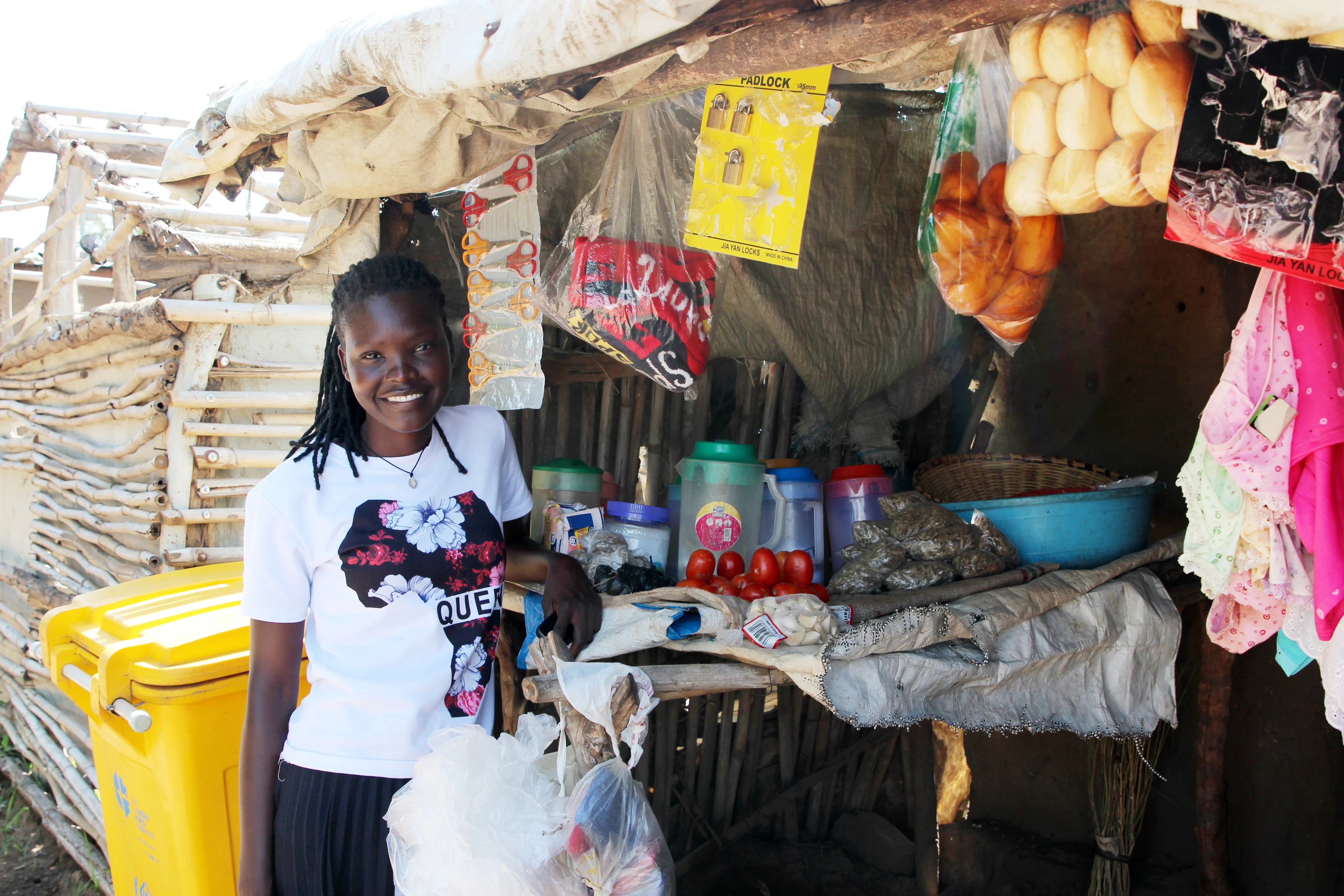
How a non-traditional approach to education is empowering girls and young women in Uganda
When we talk about education, the conventional image is that of traditional classrooms, books, and scholarships. However, in the face of protracted crises, such as those experienced by girls and young women in the refugee settlements of Uganda, there’s a pressing demand for education that meaningfully impacts their lives. This necessitates a focus on practical education in areas like financial literacy, parenting education to equip young families, and sexual and reproductive health education to ensure their wellbeing and informed choices in these critical areas.
With programs designed by and for girls, we’re working in Uganda’s Adjumani refugee settlement to help improve access to services that empower local and refugee adolescent girls, and challenge the cultural norms and practices that lead to early marriage, unplanned pregnancy and violence against women. Our vision is for girls to live in safe and supportive communities where they enjoy equal rights and opportunities.
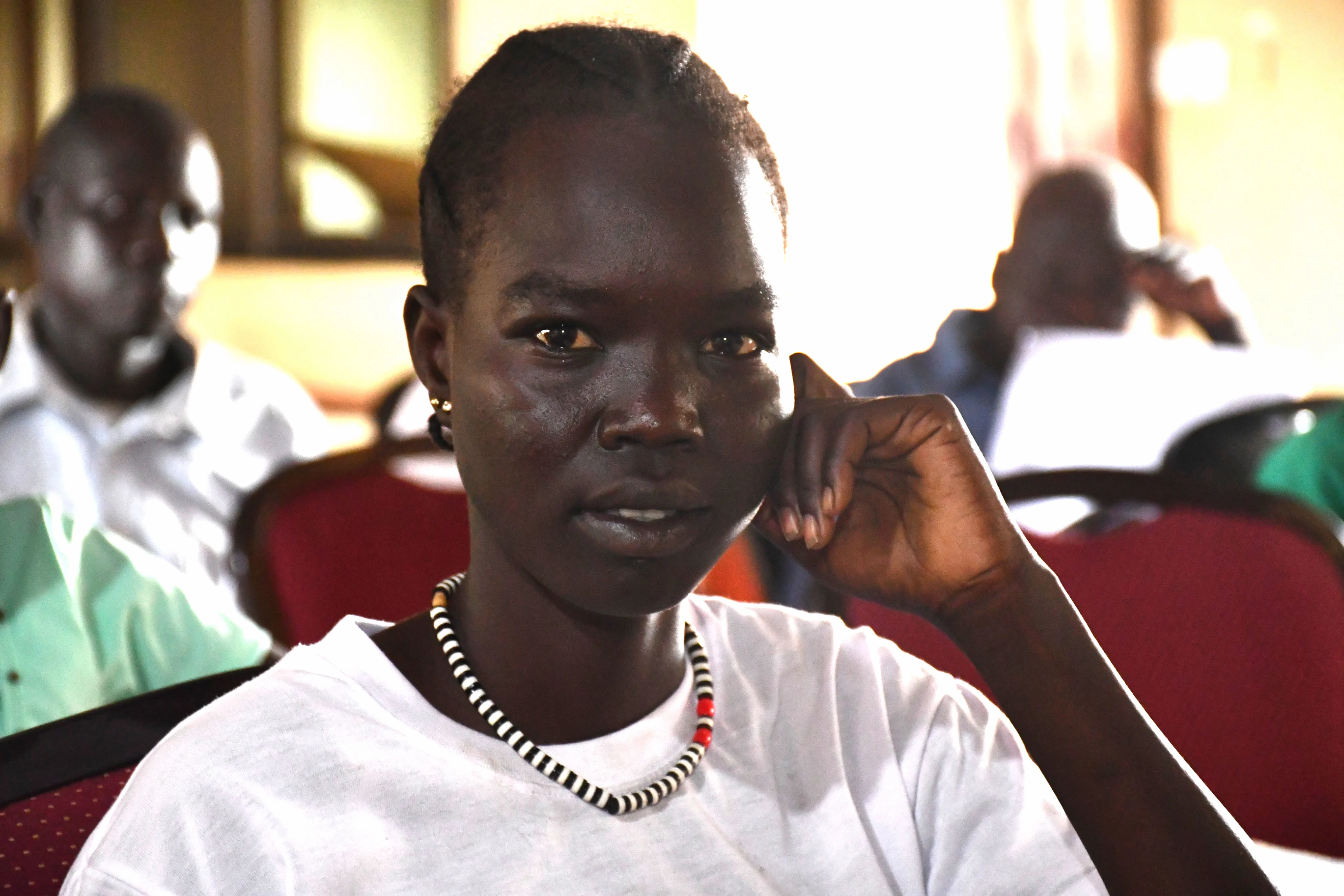
The programs:
Sexual and reproductive health education
Quarterly community health outreaches provide young girls and boys with sex education, advice and screening. This included information on HIV/AIDS, other sexually transmitted diseases, pregnancy testing, condom distribution, cervical cancer screening, and human papillomavirus (HPV) vaccinations for girls between 10 and 13.
Education for financial empowerment
Early pregnancy results in girls dropping out of school. But youth savings groups can provide teenage girls and young mums the chance to create decent livelihoods, and build autonomy. Members contribute savings to the group then each young woman can take small low-interest loans to start or grow their business. They pay interest which helps to build group savings and fund more loans in the future. Members also learn valuable skills for running their own business.
Keeping her dream alive
Ruth didn’t want to drop out of school, but the 20-year-old refugee from South Sudan says she had no choice when she couldn’t afford the fees. "After I left school, I was at home, and life became very hard," she shares.
The settlement where she lives, in the Adjumani district in the north of Uganda, is now home to some 15,000 people (including those who live in the host community).
Ruth has eight siblings, three of whom are already married due to the family’s economic situation. She wanted to help her family, so she joined a business training program. Today, she is the proud owner of a successful small business, selling charcoal, dried fish, tomatoes, scissors, padlocks and dresses – a real corner store.
“I was able to borrow some money, and I started my business,” she explains. “When I started to make a profit, I repaid the money plus interest. I understand profit, loss and interest and other things that go into running a business.”
Her early success emboldened her to borrow more money to expand. “I thought to myself, ‘I am capable; I am strong,’” she says. Ruth has since repaid that loan, which makes her feel “happy and excited” that she can support her parents, buy food for the family and pay the school fees for her younger siblings. “I am now living happily. I’m shining and proud.”
Ruth credits her success to the mentors she met in the Youth Savings Group she joined. She hopes to also be a mentor one day. “I want others in my community to become empowered and move on with their lives,” she says.
“My next step is to continue growing my business. I may get my mom to run this one while I start another. I also want to help my younger siblings finish school, and maybe I’ll return to school to study social work and social administration, because I like counselling people.”
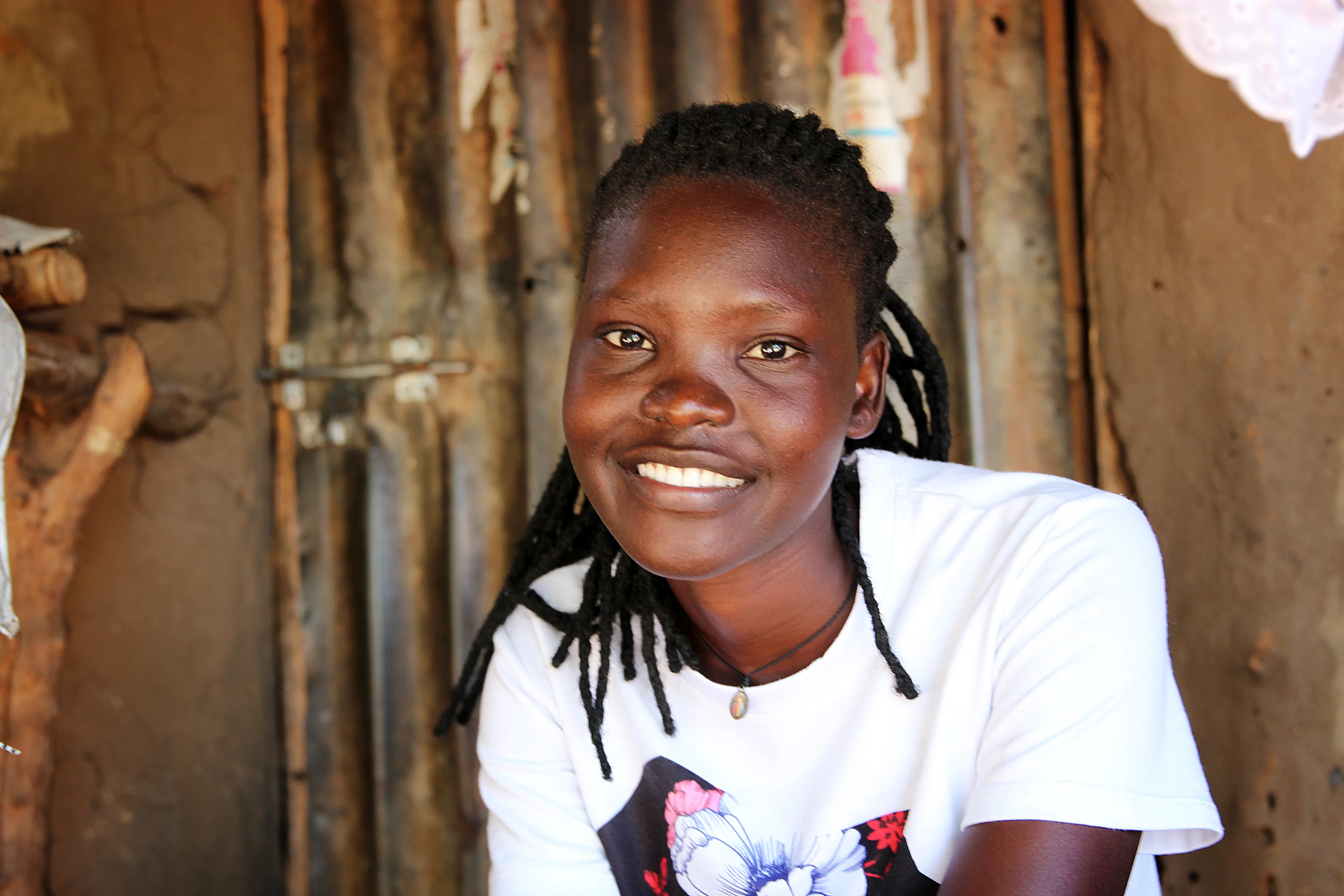
The programs:
Strengthening systems to protect girls
Workers trained adolescent girls and young mums on how to recognise and report child protection issues such as child marriage, sexual exploitation and gender-based violence. Reporting channels such as suggestion boxes, toll free lines, and involving child protection committees and cultural/religious leaders were set up and promoted to other girls.
Parenting education for young couples
Targeted learning sessions educate young couples and their parents on the rights of women and girls, as well as sexual and reproductive health issues. Follow up visits with participants indicate that many young mums have improved relationships with their partners because of the sessions.
Learning how to share the parenting load in emergencies
Prossy and Dominic were not prepared when they found out they were about to become parents - “I was terrified when I learnt about my pregnancy. I wasn’t ready for it”, says 20-year-old Prossy.
Like many young couples living in their refugee settlement, Prossy and Dominic didn’t feel they had the resources, knowledge or skills to care for a child, especially when facing their own difficulties, dealing with the effects of displacement.
Prossy’s biggest fear was that Dominic would abandon her, and Dominic had very traditional views on caretaking roles - that is, before the couple took part in Plan International’s Parenting Under Pressure educational program, “Before my participation in the parenting sessions, I thought the responsibility of child care was entirely for women and could not support my wife in it,” shares Dominic.
Prossy and Dominic were among 100 young mothers and their partners from Boroli and Pagirinya refugee settlements, who participated in the Parenting Under Pressure sessions conducted by project mentors in their village. “When I received the news that Plan International would conduct parenting sessions for couples with children below the age of 8 years, I wasted no time,” says Prossy.
The program supports parents in emergency settings and aims to empower parents and caregivers of newborn babies through to 8 year-old children to provide nurturing care that supports their children’s healthy development and well-being, including a focus on child protection and opportunities for play and learning.
The sessions include lessons on responsive caregiving, positive parent/caregiver-child interaction, stress responses and management strategies, and help to strengthen their parenting skills and improve their confidence as parents and caregivers.
Relationships between mothers, fathers, and other female and male caregivers are also strengthened, and men are encouraged to take a more active role in caregiving, improving gender equality and social cohesion in communities.
“I thank Plan international for taking us through the sessions,” says Dominic. “I am now fully engaged in childcare. I can carry the child when the mother is engaged, play with her and clean her when she is dirty. Our lives have become more cheerful. Now fathers in my community are actively engaged in caregiving which supports gender equality, thanks to the sessions.”
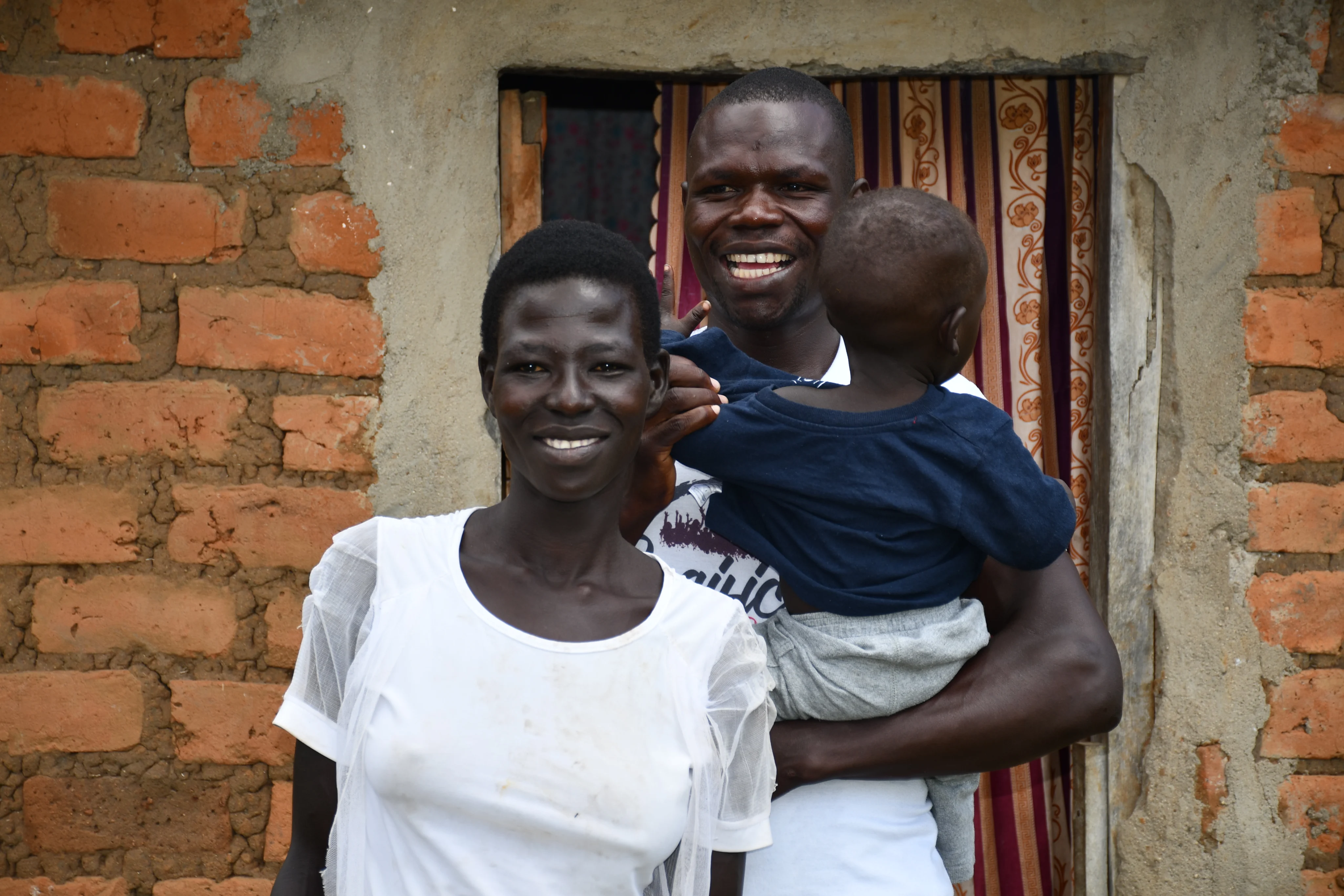
In the past year, the Adolescent Girls in Crisis (AGiC) project has supported 3,344 people, including 1,235 girls and 866 young women, across two refugee settlements in northern Uganda.
Participants in 25 Youth Savings Groups study business skills such as record keeping, branding, market assessment and business planning.
They also learn about their social and economic rights, which decreases their risks of gender-based violence and early and forced marriage.The results? To date, 157 adolescent girls and young mothers are now engaged in their businesses, and 81% of them say that the training has helped them manage their finances.
The project also created four Adolescent Girls and Young Mothers (AGYM) safe spaces, where participants can access protection services. To date, 109 survivors of violence have accessed non-food items and have been referred for further support.
In addition, 41 health workers have been trained in adolescent-friendly services. This has helped 3,936 adolescents access sexual and reproductive health services.
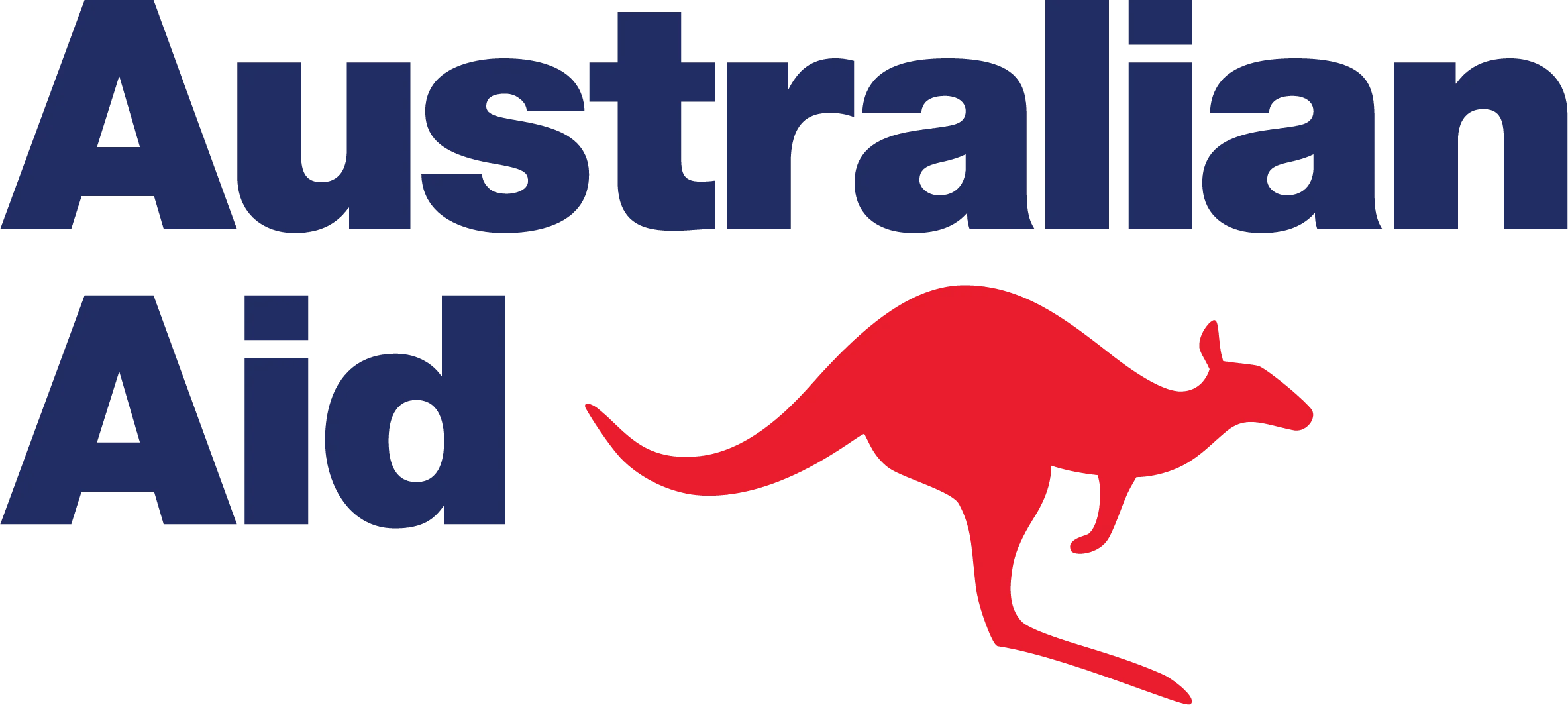
The Adolescent Girls in Crisis program is supported by the Australian Government through the Australian NGO Cooperation Program (ANCP), and the Judith Neilson Foundation.

